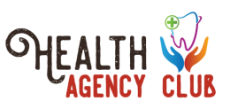Recovery from addiction is a complex journey that involves healing the body, mind, and spirit. While therapy, counseling, and support groups play crucial roles in this process, nutrition is often an overlooked aspect of addiction recovery. Proper nutrition can significantly impact an individual’s ability to heal, regain physical health, and maintain emotional stability. In this article, we will explore the importance of nutrition in addiction recovery and provide insights into how to fuel the body and mind for healing.
The Toll of Substance Abuse on Nutrition
Substance abuse can take a severe toll on an individual’s nutritional health. People struggling with addiction often prioritize their substance of choice over proper nutrition, leading to various health issues, including:
- Malnutrition: Alcohol and drugs can suppress appetite, leading to a reduced intake of essential nutrients. Over time, this can result in malnutrition and deficiencies in vitamins and minerals.
- Gastrointestinal Problems: Substance abuse can damage the digestive system, impairing nutrient absorption. This can lead to digestive issues, malabsorption, and nutrient deficiencies.
- Weight Fluctuations: Many individuals with addiction experience weight fluctuations, which can impact overall health. This includes both unhealthy weight loss and weight gain.
- Weakened Immune System: Malnutrition weakens the immune system, making individuals more susceptible to illnesses.
- Mental Health Challenges: Poor nutrition can exacerbate mental health issues such as depression and anxiety, which are often intertwined with addiction.
The Role of Nutrition in Recovery
- Physical Healing: Proper nutrition is essential for physical healing. It helps repair damaged tissues, support organ function, and restore overall health. A balanced diet provides the body with the necessary nutrients to recover from the harmful effects of substance abuse.
- Emotional Stability: Nutrition plays a significant role in emotional well-being. Nutrient-rich foods can help stabilize mood, reduce anxiety, and alleviate symptoms of depression. A well-nourished brain is better equipped to handle the emotional challenges of recovery.
- Reducing Cravings: Cravings for drugs or alcohol can be triggered by imbalances in blood sugar levels. A diet that stabilizes blood sugar through complex carbohydrates and protein can help reduce cravings.
- Enhancing Cognitive Function: Substance abuse can impair cognitive function. A nutritious diet can support cognitive recovery, improving focus, memory, and decision-making.
- Supporting Detoxification: The body’s natural detoxification processes rely on nutrients. Proper nutrition aids in the detoxification of substances from the body.
Key Nutrients for Recovery
- Protein: Protein is essential for repairing tissues and supporting overall physical health. Sources include lean meats, fish, poultry, beans, and tofu.
- Complex Carbohydrates: Complex carbohydrates provide sustained energy and help stabilize blood sugar levels. Whole grains, fruits, vegetables, and legumes are excellent sources.
- Fruits and Vegetables: These are rich in vitamins, minerals, and antioxidants that support overall health. A colorful variety ensures a broad range of nutrients.
- Healthy Fats: Omega-3 fatty acids, found in fatty fish, flaxseeds, and walnuts, support brain health and reduce inflammation.
- Hydration: Staying hydrated is crucial for overall health and helps flush toxins from the body. Water is the best choice, but herbal teas and infused water can add variety.
- Supplements: In some cases, individuals in recovery may require supplements to address specific deficiencies. Consulting a healthcare professional or registered dietitian can help determine individual needs.
Challenges in Nutritional Recovery
While the benefits of nutrition in recovery are clear, several challenges may impede individuals from adopting a healthier diet:
- Cravings and Habits: Cravings for substances can lead to poor dietary choices. Recognizing and managing these cravings is crucial.
- Financial Constraints: Access to nutritious foods can be limited by financial constraints. Exploring affordable options and community resources can help overcome this challenge.
- Lack of Nutritional Knowledge: Some individuals may lack knowledge about proper nutrition. Nutrition education and support groups can address this gap.
- Co-Occurring Disorders: Co-occurring mental health disorders may complicate efforts to improve nutrition. Comprehensive treatment that addresses both addiction and mental health is essential.
- Social Support: Having a support system that encourages healthy eating can be beneficial. Support from friends, family, or fellow recovery group members can make a significant difference.
Nutrition as a Lifelong Practice
Recovery is an ongoing journey, and nutrition should be viewed as a lifelong practice. To maintain physical and emotional well-being, it’s essential to continue making healthy dietary choices. Additionally, practicing mindfulness around food, eating mindfully, and seeking support when needed can contribute to a sustainable and fulfilling recovery.
Conclusion
Nutrition is a fundamental component of addiction recovery that supports physical healing and emotional stability. By addressing the nutritional needs of individuals in recovery, we can enhance their overall well-being and provide them with essential tools to maintain sobriety. A holistic approach to recovery that includes proper nutrition empowers individuals to heal not only their bodies but also their minds and spirits, ultimately leading to a healthier, more fulfilling life in recovery.



